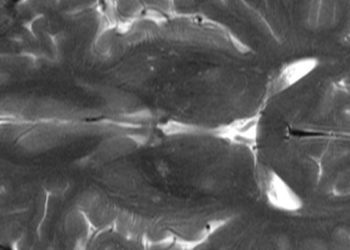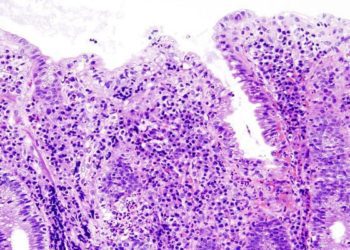Adjuvant erythropoietin therapy does not improve survival in newborns with hypoxic-ischemic encephalopathy
1. Erythropoietin administration did not lower the risk of death or neurodevelopmental impairment in newborns with hypoxic-ischemic encephalopathy as compared to placebo control.
2. Incidence of serious adverse events was higher in the erythropoietin group than in the placebo group.
Evidence Rating Level: 1 (Excellent)
Study Rundown: Currently, therapeutic hypothermia is the only effective treatment for neonatal hypoxic-ischemic encephalopathy. Yet, the combined mortality and disability rate associated with this treatment remains high at up to 40%. There is evidence supporting erythropoietin as a potential adjuvant therapy for these patients in preclinical studies and early clinical trials with limited sample size and follow-up. This phase three randomized control trial evaluated the efficacy and safety of erythropoietin as compared to placebo control as an adjuvant therapy to induced hypothermia for neonatal patients with hypoxic-ischemic encephalopathy. There were no significant differences in the incidence of death between the placebo and study groups. The incidence of neurodevelopmental impairment was also not significantly different. Further, no significant differences were found in the severity or pattern of brain injury. The number of adverse events per patient was significantly higher in the erythropoietin group compared to the placebo group. As a limitation, this study was unable to determine the effectiveness and safety of erythropoietin alone as a treatment for hypoxic-ischemic encephalopathy. In addition, the study population was restricted to moderate and severe forms of hypoxic-ischemic encephalopathy, so the effects of erythropoietin adjuvant therapy for mild disease are unknown.
Click to read the study in NEJM
In-Depth [randomized controlled trial]: In the present study, infants with moderate or severe hypoxic-ischemic encephalopathy on background therapeutic hypothermia (n=500) were randomly assigned to receive erythropoietin (n=257) or a placebo control (n=243). Neonatal patients received a 1000 U per kilogram dose of erythropoietin or saline intravenously before 26 hours of age, and at two, three, four, and seven days of age. Patients were followed for mortality, neurodevelopmental impairment, and adverse events until 22 to 36 months of age. Neurodevelopmental impairment was clinically defined as the development of cerebral palsy, impaired gross motor function, and impaired cognitive function. In total, 37 and 28 deaths were recorded in the erythropoietin (14.4%) and placebo (11.5%) groups, respectively. There was no significant difference in the incidence of neurodevelopmental impairment (43.8% and 42.3% of the erythropoietin and placebo groups, respectively). Magnetic resonance imaging of the brain, performed at four to six days after birth, showed no significant difference between groups in the severity or pattern of brain injury. The proportion of patients with at least one serious adverse event was significantly higher in the erythropoietin (53.3%) compared to the placebo (43.6%) group (Relative Risk [RR], 1.21; 95% Confidence Interval [CI], 1.00 to 1.45). Similarly, the average number of serious adverse events per child was significantly higher in the erythropoietin (0.86) compared to the placebo (0.67) group (RR, 1.26; 95% CI, 1.01 to 1.57). In summary, this study provides evidence against the use of adjuvant erythropoietin for infants with hypoxic-ischemic encephalopathy. However, more studies are necessary to determine the efficacy of erythropoietin alone as a therapy for hypoxic-ischemic encephalopathy.
Image: PD
©2022 2 Minute Medicine, Inc. All rights reserved. No works may be reproduced without expressed written consent from 2 Minute Medicine, Inc. Inquire about licensing here. No article should be construed as medical advice and is not intended as such by the authors or by 2 Minute Medicine, Inc.









